Table of Contents[Hide][Show]
- Nutrivore Score for Cricket – 1071
- Cricket Nutrition Facts
Health Benefits of Cricket Nutrients+−
- Cricket Provides 2,711% DV Vitamin A
- Cricket Provides 417% DV Vitamin B12 (Cobalamin)
- Cricket Provides 262% DV Vitamin B2 (Riboflavin)
- Cricket Provides 243% DV Linoleic Acid
- Cricket Provides 184% DV Zinc
- Cricket Provides 159% DV Copper
- Cricket Provides 146% DV Manganese
- Cricket Provides 71.1 g of Protein
- Cricket Provides 109% DV Monounsaturated Fatty Acids (MUFA)
- Cricket Provides 67% DV Phosphorus
- Cricket Provides 67% DV Vitamin B7 (Biotin)
- Cricket Provides 49% DV Iron
- Cricket Provides 46% DV Vitamin B5 (Pantothenic Acid)
- Cricket Provides 38% DV Vitamin B9 (Folate)
- Cricket Provides 10.2 g of Fiber
- Cricket Provides 141.0 mg of Taurine
- Cricket Provides 35% DV Selenium
- Cricket Provides 28% DV Choline
- Cricket Provides 24% DV Vitamin B3 (Niacin)
- Cricket Provides 23% DV Magnesium
- Cricket Provides 22% DV Calcium
- How Much Cricket Should We Eat Per Day?
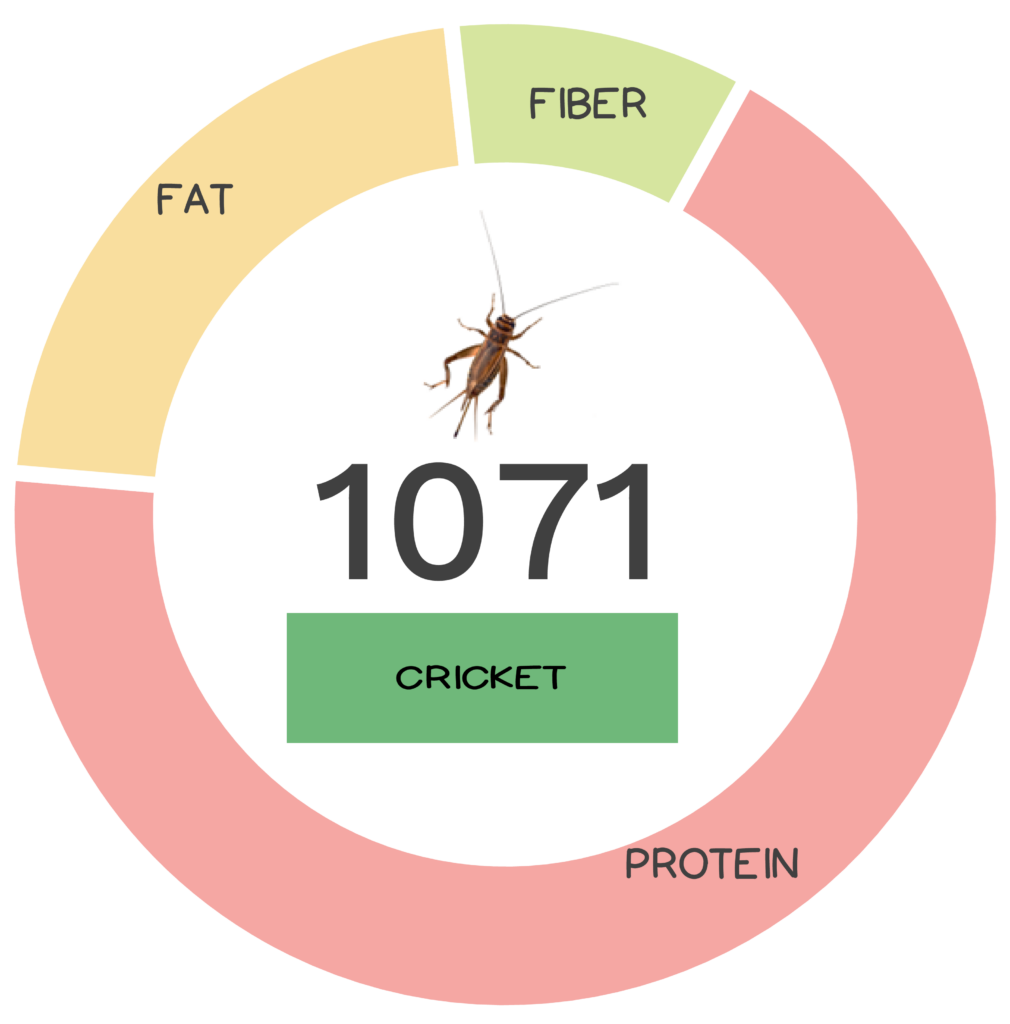
Eating insects dates back to prehistoric times. Due to the impact of climate change and the drive to source environmentally responsible protein options, crickets have become an increasingly popular food option. Currently, crickets are the most consumed bug in the world!
Crickets are the most commonly consumed insect in the world!
Many people are still warming up to the idea of eating insects, either because of a belief that consuming insects is dangerous, unsafe, can result in illness, or just simply because it sounds “gross.” Latin American, African and Asian populations all are accustomed to eating bugs as a part of their traditional cultures, so in many parts of the world it is not gross, but normal and common.
Not only do crickets provide a great source of protein (even more so than chicken, goat and pork), but they are rich in many minerals, are cheap, and are easily-produced, with vast potential to support severely malnourished countries.
Because of the clear benefits of producing nutritious, cheap, and easy protein sources, many other areas of the world have begun to adopt (and accept) cricket consumption including in Canada, the United States and Europe.
Crickets can be found dried in their whole form, but more often are found as an ingredient in protein bars, and in dried powder form.
More research is necessary to determine if there are any pathogens from farmed cricket that can transmit to humans, however similar to any other animal protein, consumers must be aware of the quality and reputability of the cricket products they consume. Always seek out certification labels that reveal regulation and quality control standards.
It is important to seek out reputable producers of cricket products as the regulation and research of this food group needs to be expanded.
Some research shows that people who have shellfish or dust mite allergies might want to avoid consumption of crickets, as they may have an allergic reaction. More research is needed in these areas as the global consumption of crickets continues to rise.
If you’re not too squeamish, let’s learn more about why you might want to jump into adding cricket into your diet.
Nutrivore Score for Cricket – 1071

Cricket has a Nutrivore Score of 1071, making it a super nutrient-dense food!
Per serving, cricket is a best source (>50% daily value) of copper, linoleic acid, manganese, monounsaturated fatty acids (MUFA), phosphorus, protein, vitamin A, vitamin B2 (riboflavin), vitamin B7 (biotin), vitamin B12 (cobalamin), and zinc; an excellent source (20-50% daily value) of calcium, choline, dietary fiber, iron, magnesium, selenium, taurine, vitamin B3 (niacin), vitamin B5 (pantothenic acid), and vitamin B9 (folate); and a good source (10-20% daily value) of iodine and vitamin B6 (pyridoxine).
Ditch Diets. Embrace Nutrients. Start with this FREE Guide.
Sign up for the free Nutrivore Newsletter, your weekly, science-backed guide to improving health through nutrient-rich foods — without dieting harder —and get the Beginner’s Guide to Nutrivore delivered straight to your inbox!

Cricket Nutrition Facts
One serving of cricket is standardized to 100 grams (3.5 ounces).
Cricket Nutrition Facts Per Serving
| Cricket | Nutrivore Score: 1071 | Nutrient Density: Super! |
|---|---|---|
| Serving Size: 3.5 ounces (100 grams) | Protein: 71.1 grams | Net Carbohydrates: ~ |
| Calories: 455 | Total Fat: 22.8 grams | Dietary Fiber: 10.2 grams |
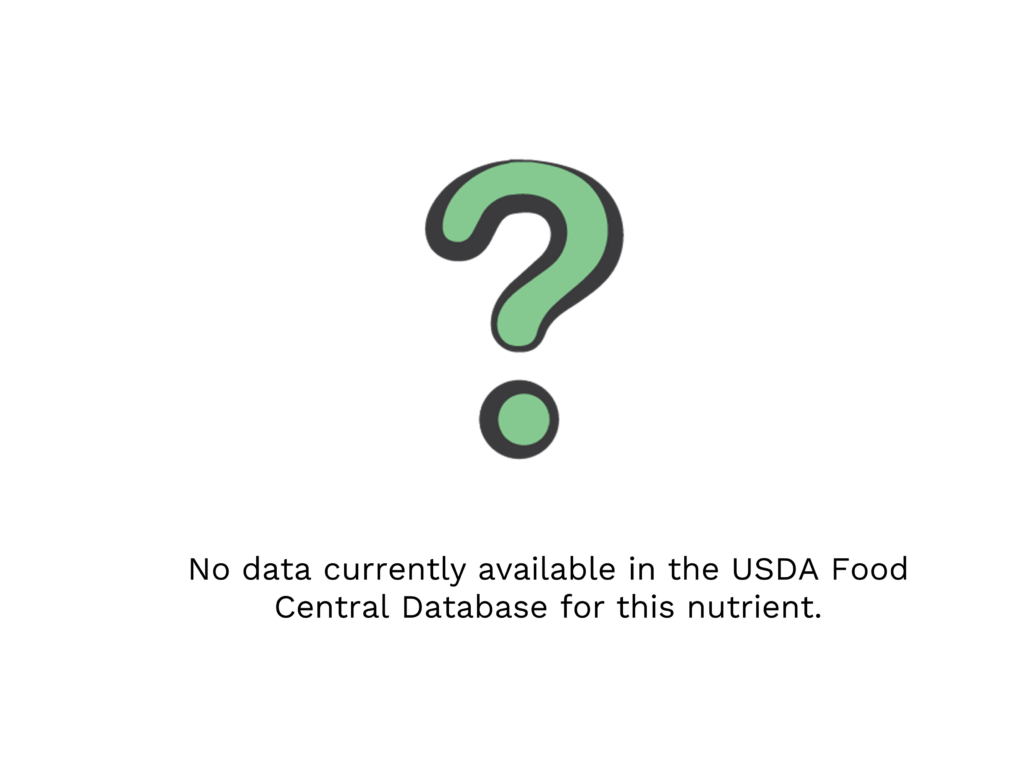
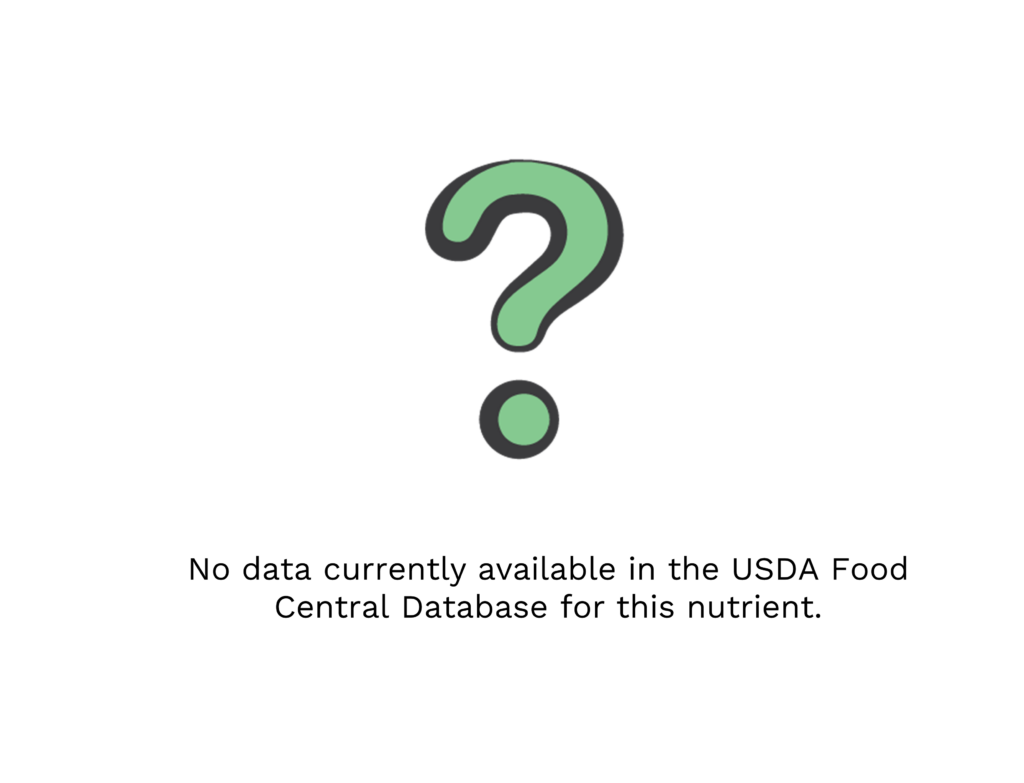
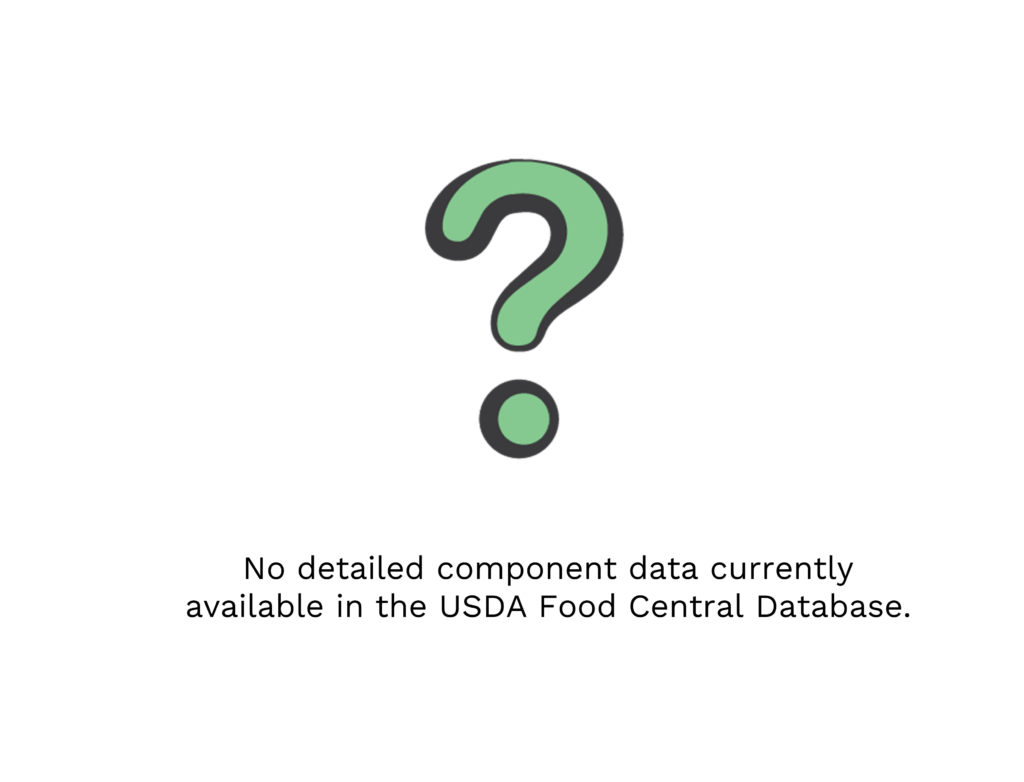
| VITAMINS | ||
|---|---|---|
| Vitamin A | 24400.0 μg RAE | 2711% DV |
| Vitamin B1 (Thiamin) | 40.0 μg | 3% DV |
| Vitamin B2 (Riboflavin) | 3410.0 μg | 262% DV |
| Vitamin B3 (Niacin) | 3.8 mg | 24% DV |
| Vitamin B5 (Pantothenic Acid) | 2.3 mg | 46% DV |
| Vitamin B6 (Pyridoxine) | 230.0 μg | 14% DV |
| Vitamin B7 (Biotin) | 20.0 μg | 67% DV |
| Vitamin B9 (Folate) | 150.0 μg | 38% DV |
| Vitamin B12 (Cobalamin) | 10.0 μg | 417% DV |
| Vitamin C | 3.0 mg | 3% DV |
| Vitamin D (D2 + D3) | ~ | ~ |
| Vitamin E | 1.3 mg | 9% DV |
| Vitamin K | ~ | ~ |
| Choline | 151.9 mg | 28% DV |
| Myo-Inositol | ~ | ~ |
| CoQ10 | ~ | ~ |
| FUNCTIONAL FATS | ||
|---|---|---|
| MUFA | 21.7 g | 109% DV |
| ALA | ~ | ~ |
| EPA + DHA | 10.0 mg | 4% DV |
| CLA | ~ | ~ |
| Linoleic Acid | 41.4 g | 243% DV |
| MCT’s | ~ | ~ |
| MINERALS | ||
|---|---|---|
| Calcium | 287.0 mg | 22% DV |
| Copper | 1430.0 μg | 159% DV |
| Iodine | 21.0 μg | 14% DV |
| Iron | 8.8 mg | 49% DV |
| Magnesium | 94.7 mg | 23% DV |
| Manganese | 3350.0 μg | 146% DV |
| Phosphorus | 832.9 mg | 67% DV |
| Potassium | 126.6 mg | 3% DV |
| Selenium | 19.0 μg | 35% DV |
| Sodium | 435.1 mg | 19% DV |
| Zinc | 20.2 mg | 184% DV |
| PHYTONUTRIENTS | ||
|---|---|---|
| Carotenoids | ~ | ~ |
| Polyphenols | 0.0 mg | ~ |
| Phytosterols | ~ | ~ |
| Glucosinolates | ~ | ~ |
| Thiosulfinates | ~ | ~ |
| Betalains | ~ | ~ |
| AMINO ACIDS & PEPTIDES | ||
|---|---|---|
| Taurine | 141.0 mg | ~ |
| Ergothioneine | ~ | ~ |
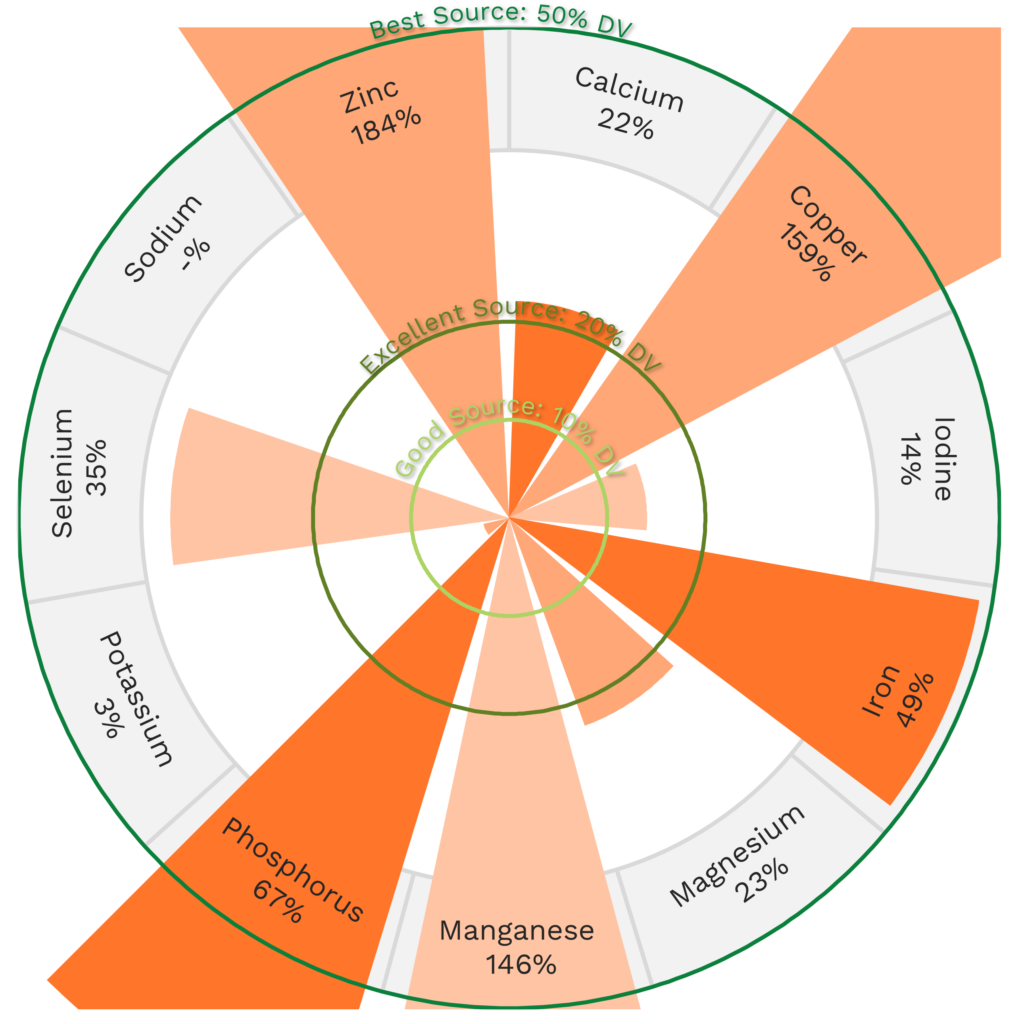
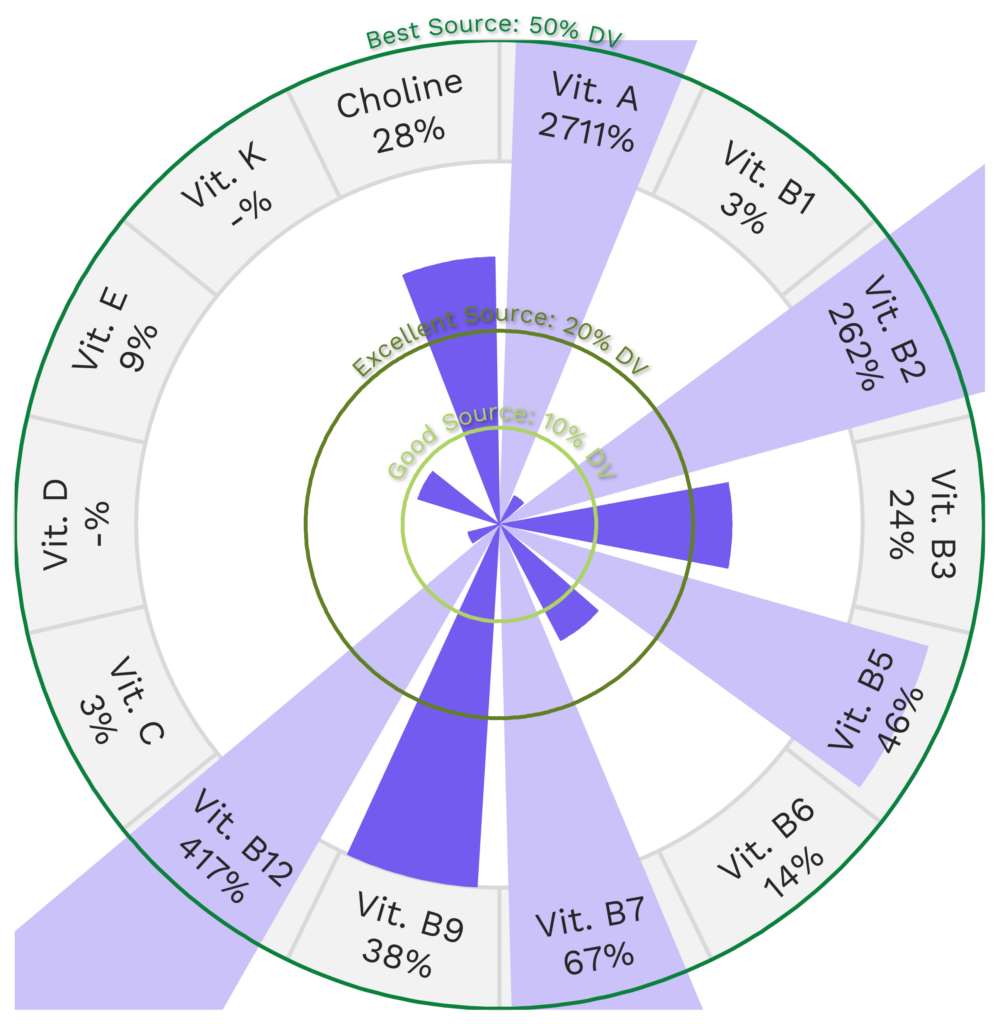
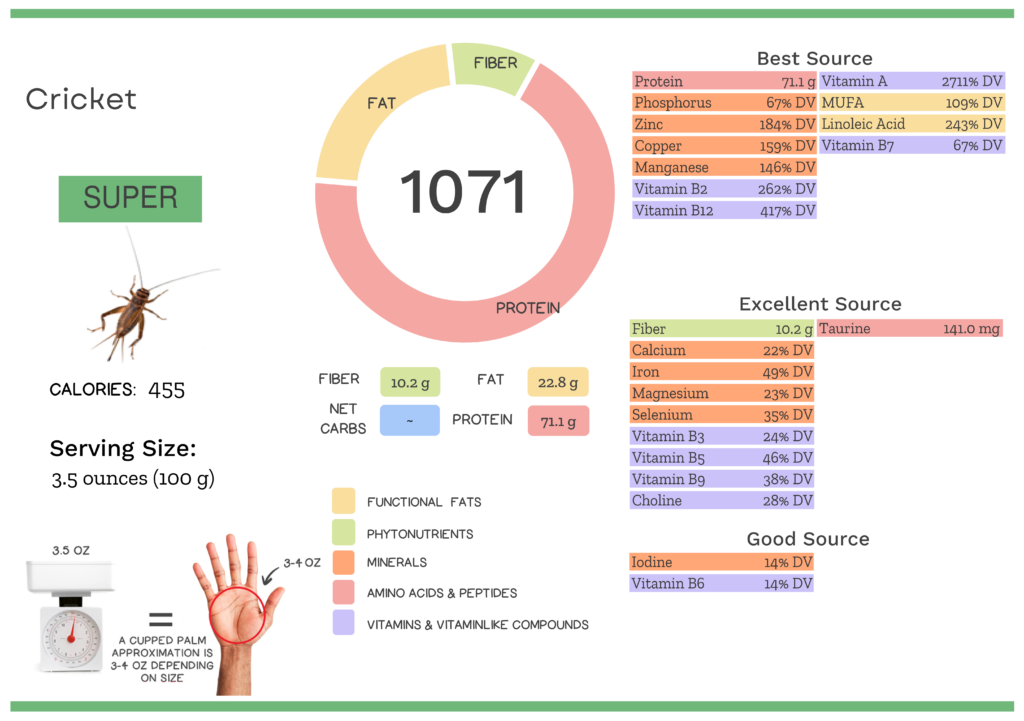
Surprised cricket is THAT nutrient-dense? Maybe your friends will be too!
Health Benefits of Cricket Nutrients
Let’s take a closer look at all of the best and excellent source of nutrients found in a 100-gram serving of cricket and see how they benefit our health.
Cricket Provides 2,711% DV Vitamin A
Cricket is a phenomenal source of vitamin A, providing 2,711% of the daily value per 100-gram serving!
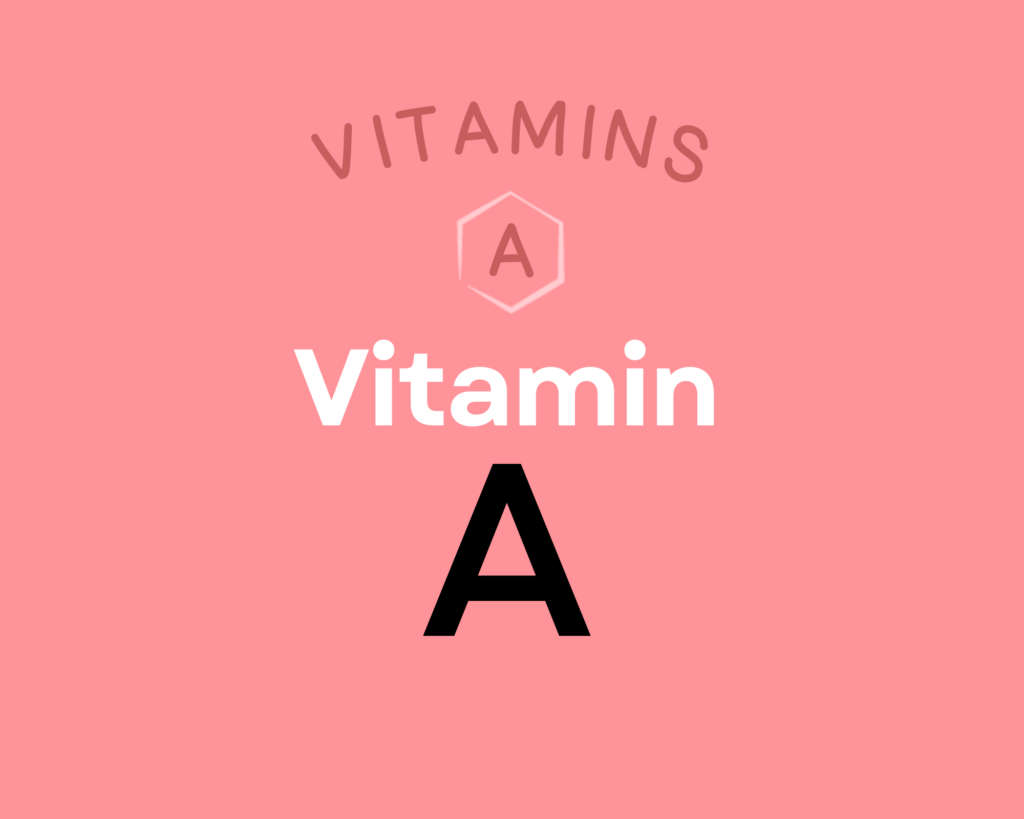
Vitamin A is actually a group of fat-soluble retinoids with vitamin A activity in the body. This nutrient is essential for a number of physiological functions—particularly vision, reproduction, thyroid health, immunity, and cellular communication. Getting enough vitamin A helps protect against some vision disorders (like night blindness and macular degeneration), supports a healthy menstrual cycle and sperm production, reduces infection risk, and allows for proper growth and development from the fetal years through childhood. Learn more about vitamin A here.
Cricket Provides 417% DV Vitamin B12 (Cobalamin)
Cricket is an outstanding source of vitamin B12 (cobalamin), providing 417% of the daily value per 100-gram serving!
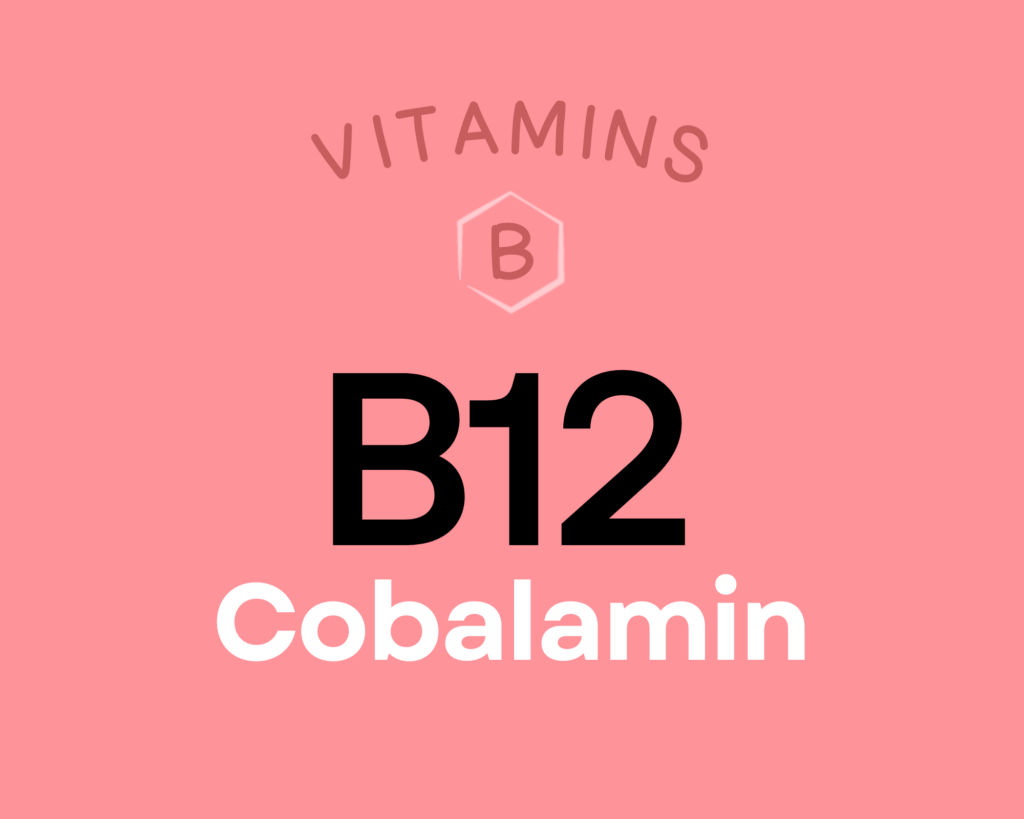
Vitamin B12 (cobalamin) is a water-soluble vitamin that serves as a cofactor for enzymes involved in energy metabolism, red blood cell production, DNA synthesis, neurotransmitter production, nervous system health, and folate metabolism. As a result of these roles, vitamin B12 is vital for maintaining brain and nervous system health, and may have a protective effect against dementia, Alzheimer’s disease, and depression. There’s also some evidence vitamin B12 may be cancer-protective, possibly through supporting folate metabolism (which then assists in repairing DNA damage). Learn more about vitamin B12 here.
Cricket Provides 262% DV Vitamin B2 (Riboflavin)
Cricket is a best source of vitamin B2 (riboflavin), providing 262% of the daily value per 100-gram serving!
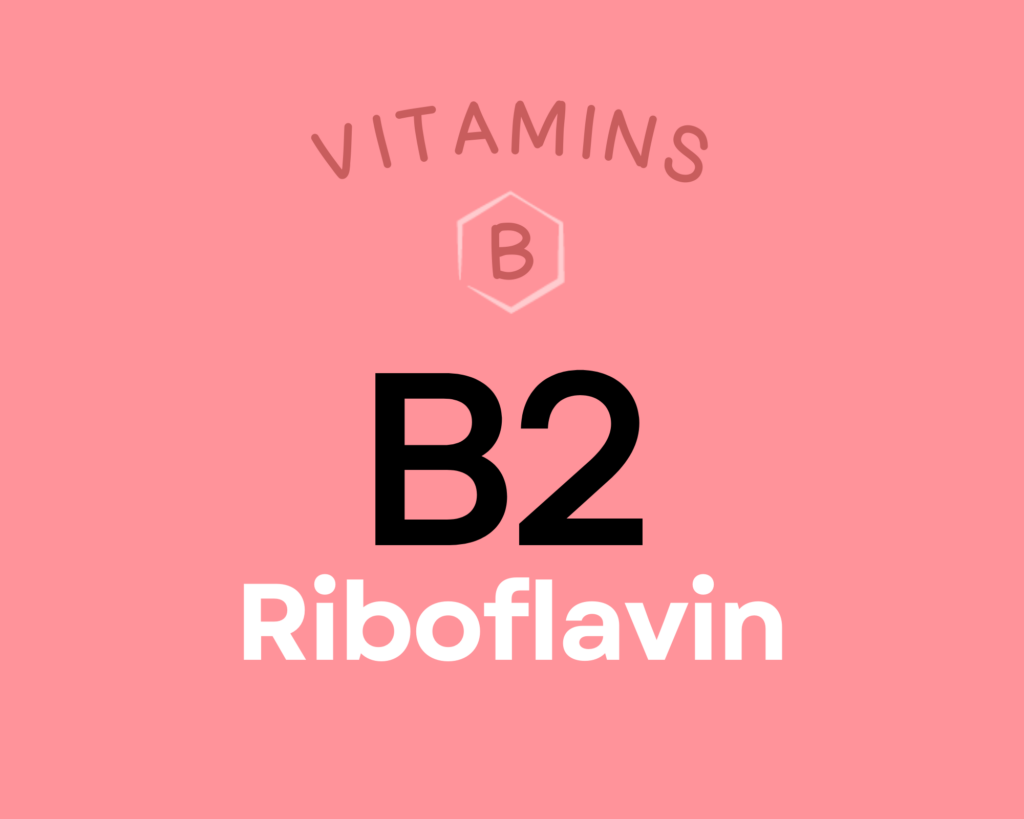
Riboflavin (or vitamin B2) is a vitamin that helps form two important coenzymes involved in oxidation-reduction reactions: flavin mononucleotide (FMN), and flavin adenine dinucleotide (FAD). Collectively, these coenzymes are involved in antibody production, energy production, growth and development, skin and hair health, and the metabolism of several other nutrients (vitamin B6, niacin, folate, and iron). Research suggests a role for riboflavin in preventing or treating migraine headaches, cardiovascular disease, cataracts, and preeclampsia during pregnancy. It also possesses some anti-cancer properties due to its involvement in folate metabolism and MTHFR activity. Learn more about vitamin B2 here.
Cricket Provides 243% DV Linoleic Acid
Cricket is also a best source of linoleic acid, providing 243% of the daily value per 100-gram serving!
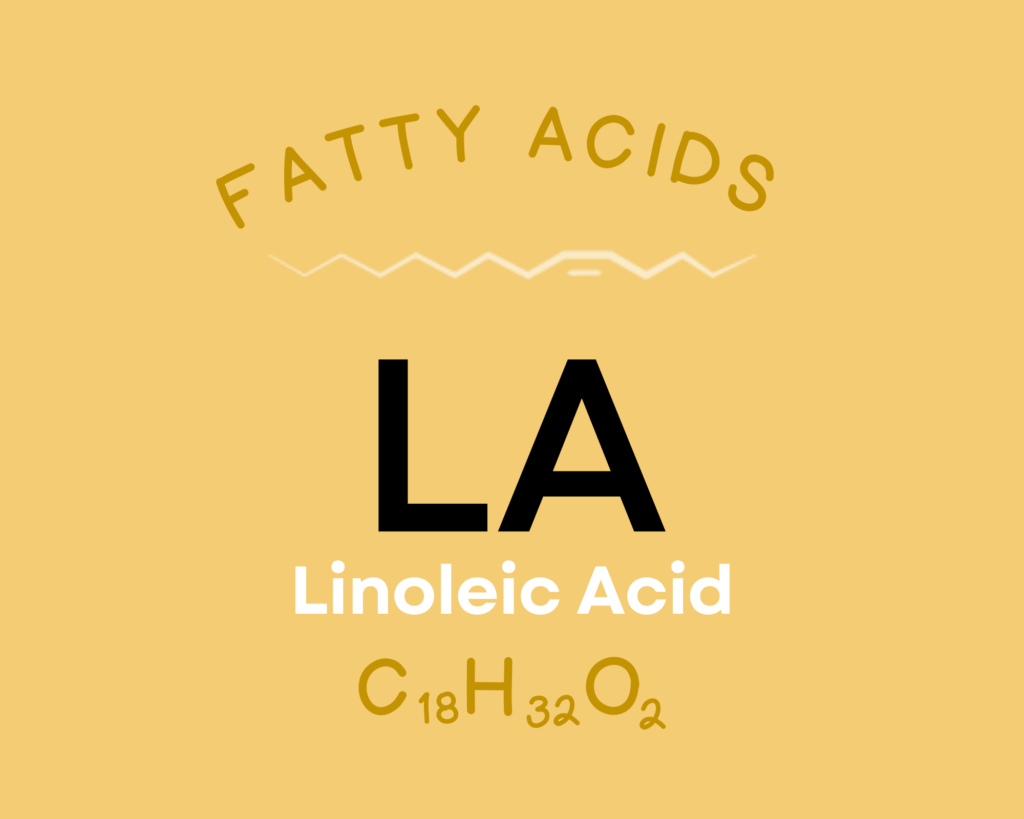
Linoleic acid is the only essential omega-6 fatty acid. Along with being required for human growth and development, it serves as a structural component of cell membranes, plays a role in maintaining skin health and integrity, and is a precursor for bioactive lipid mediators. Although linoleic acid can lower LDL cholesterol levels, research hasn’t consistently shown any protective effect against heart disease. Likewise, there’s mixed evidence (some showing benefit, some showing harm) for the effects of linoleic acid on cancer. Higher intakes have also been associated with depression and obesity, although it may have a protective effect against diabetes. Learn more here.
Cricket Provides 184% DV Zinc
Cricket is a best source of zinc, providing 184% of the daily value per 100-gram serving!
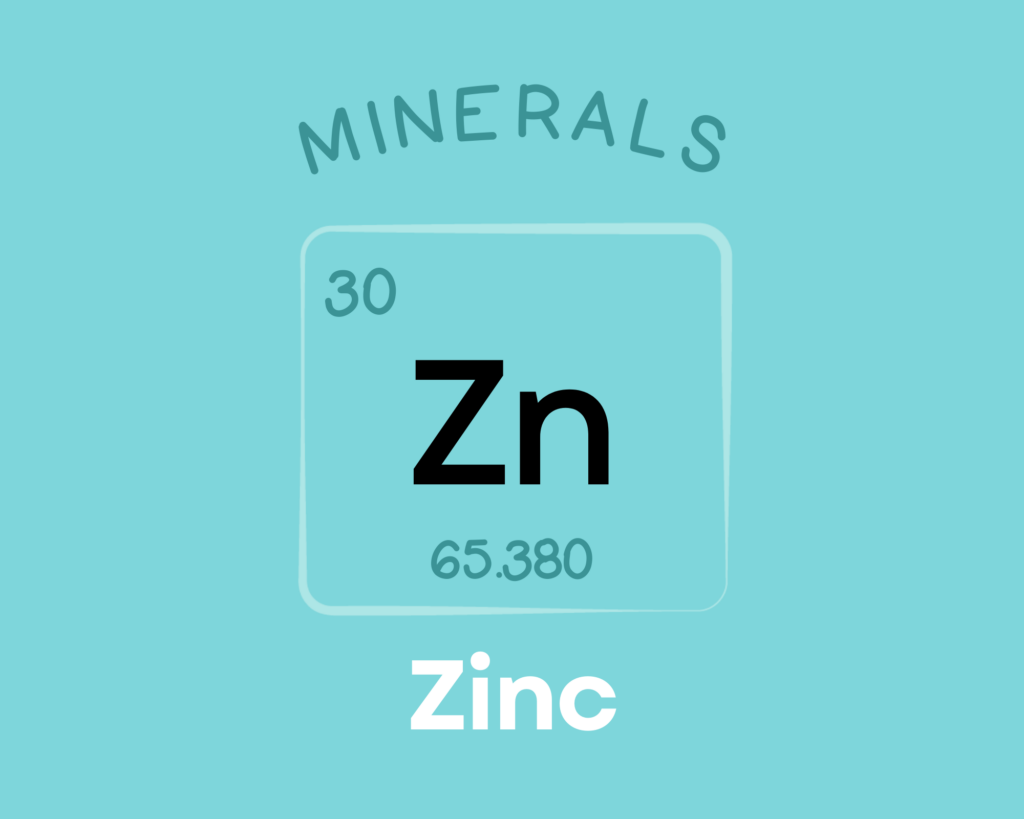
Zinc is an essential trace mineral that serves as a cofactor for over 300 enzymes and 1000 transcription factors, giving it important roles in immune function, sensory organ function, reproduction, gene regulation, DNA synthesis, wound healing, and the metabolism and activity of multiple other nutrients. Research shows it can reduce the duration of the common cold when taken shortly after the onset of illness, and can also benefit immune health in the elderly and among HIV/AIDS patients. Some studies also suggest a protective role of zinc in neurological conditions like Alzheimer’s disease and depression. Learn more about zinc here.
Cricket Provides 159% DV Copper
Cricket is also a best source of copper, providing 159% of the daily value per 100-gram serving!
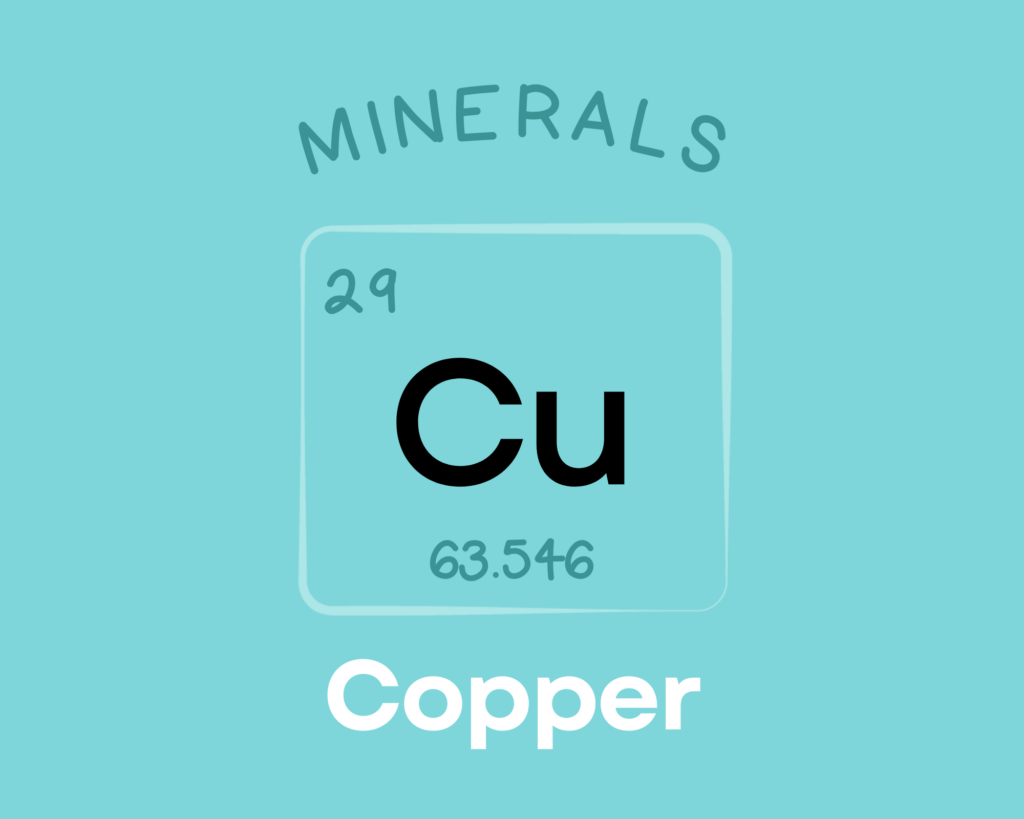
Copper is a trace mineral that’s essential for all living organisms. Copper serves as a component of numerous enzymes and proteins in the body, giving it diverse roles in the growth, development, and maintenance of various organs (including the heart and brain), bone, and connective tissue. Copper is also involved in glucose and cholesterol metabolism, helps regulate gene expression, can scavenge free radicals, and is needed for the production of red blood cells. Learn more about copper here.
Cricket Provides 146% DV Manganese
Cricket is a best source of manganese, providing 146% of the daily value per 100-gram serving!
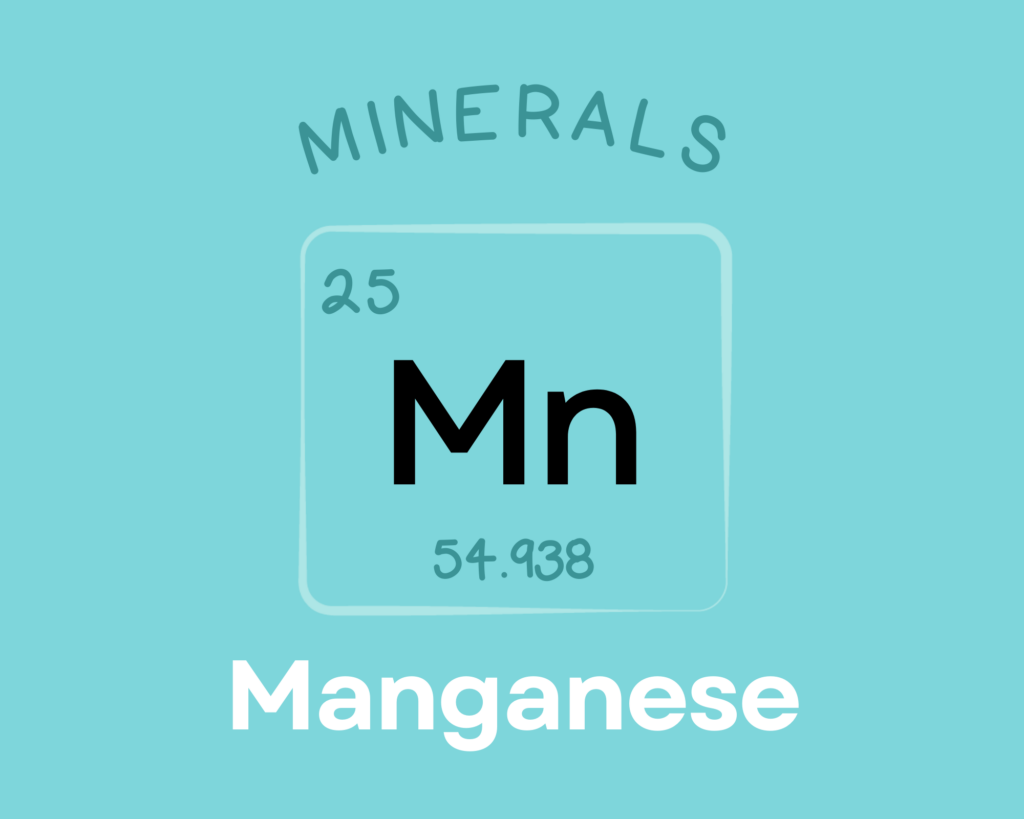
Manganese is an essential mineral that serves as a cofactor and component of numerous enzymes. Through these roles, it’s involved in carbohydrate metabolism, amino acid synthesis, gluconeogenesis, detoxification, lipid processing, free radical defense, bone and collagen formation, and wound healing. Although the research so far is limited, some evidence suggests that manganese can protect against osteoporosis and diabetes, and may even be involved in seizure disorders. Learn more about manganese here.
Cricket Provides 71.1 g of Protein
Cricket is also a best source of protein, providing 71.1 g of protein per 100-gram serving!
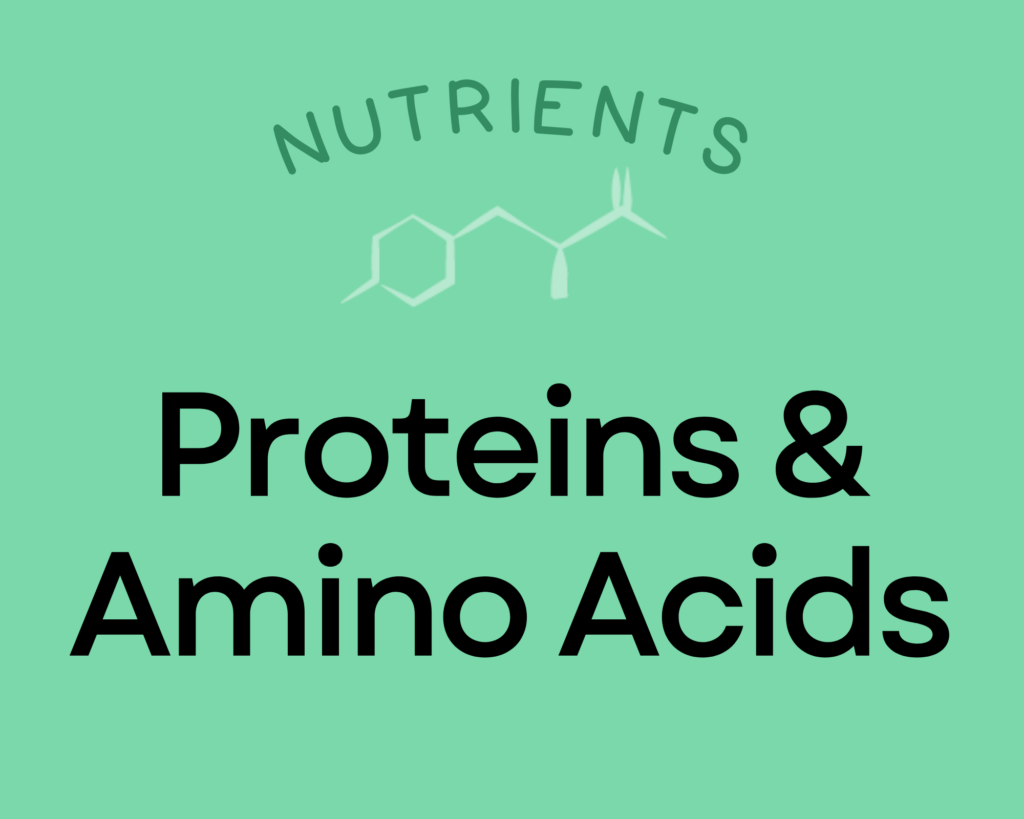
Proteins are the molecules that actually perform most of the various functions of life. In addition to being major structural components of cells and tissues, they have incredibly diverse roles from driving chemical reactions (e.g., enzymes) to signaling (e.g., some types of hormones) to transporting and storing nutrients. Dietary protein is necessary to supply the amino acid building blocks for all of the proteins in our bodies. The recommended daily allowance of protein is 0.36 grams per pound body weight (0.8 grams per kilogram of body weight). That amounts to 56 grams for a 150-pound person. However, it’s important to emphasize that this number is considered a minimum daily allotment, and there is no established upper limit. In fact, many studies have evaluated diets containing three to four times more protein than this minimum and proven benefits to weight management, body composition, hormone regulation, and cardiovascular health. These studies suggest that an optimal protein intake for most people is probably in the range of 1.2 to 1.8 grams per kilogram bodyweight (82 to 122 grams for that same 150-pound person), and that people who are very active may see the best results at even higher intake. Learn more about protein and amino acids here.
Cricket Provides 109% DV Monounsaturated Fatty Acids (MUFA)
Cricket is a best source of monounsaturated fatty acids (MUFA), providing 109% of the daily value per 100-gram serving!
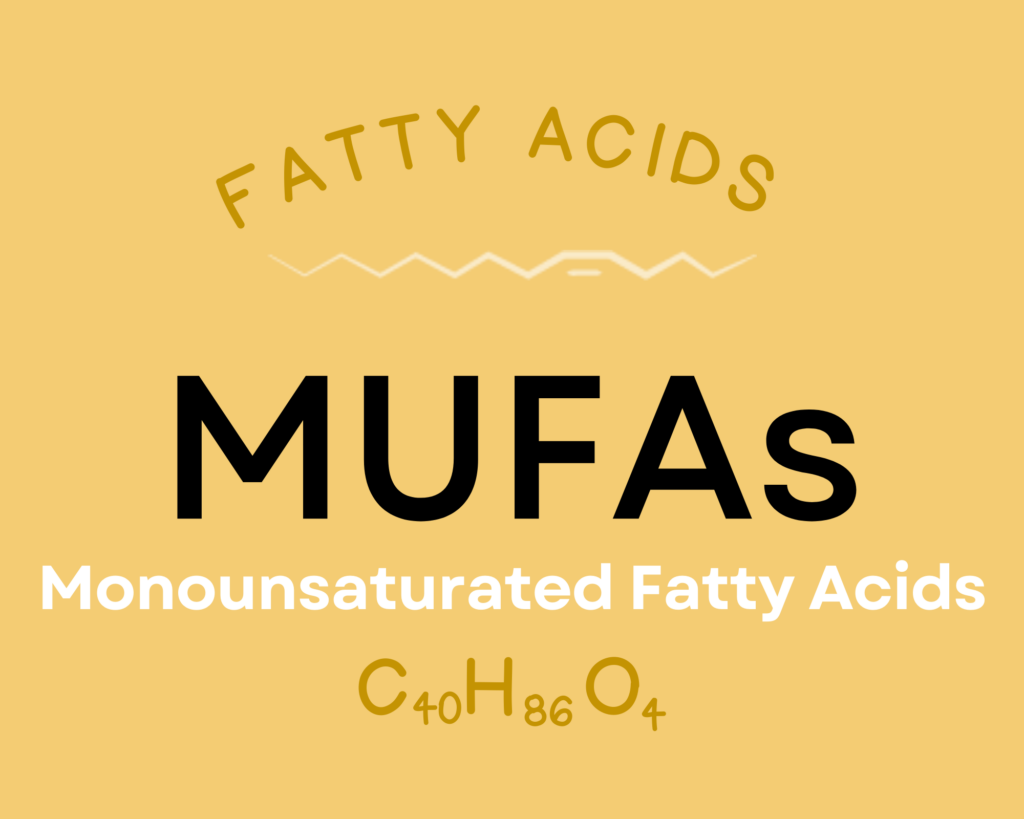
Monounsaturated fatty acids (MUFA), the most abundant of which is oleic acid, play an important role in cellular function due to its presence in phospholipids in cell membranes. Oleic acid is beneficial for cardiovascular health—both in reducing risk factors like high blood pressure, cholesterol, triglycerides, inflammation, and oxidative stress, and in reducing actual cardiovascular disease incidence and events. Oleic acid has even demonstrated anti-cancer activity, with an ability to inhibit the progression, proliferation, and metastasis of several types of cancer cells. Research shows this fat could benefit body weight regulation and obesity through its effects on energy metabolism and lipogenesis. In fact, human trials show that enriching diets with oleic acid leads to decreases in central obesity, abdominal fat, body weight, and food intake, while also possibly increasing energy expenditure! Oleic acid also possesses some benefits for diabetics—influencing genes and pathways involved in insulin signaling and glucose metabolism, as well as helping protect against some complications of diabetes, like diabetic retinopathy and atherosclerosis. Learn more about oleic acid here.
Cricket Provides 67% DV Phosphorus
Cricket is also a best source of phosphorus, providing 67% of the daily value per 100-gram serving!
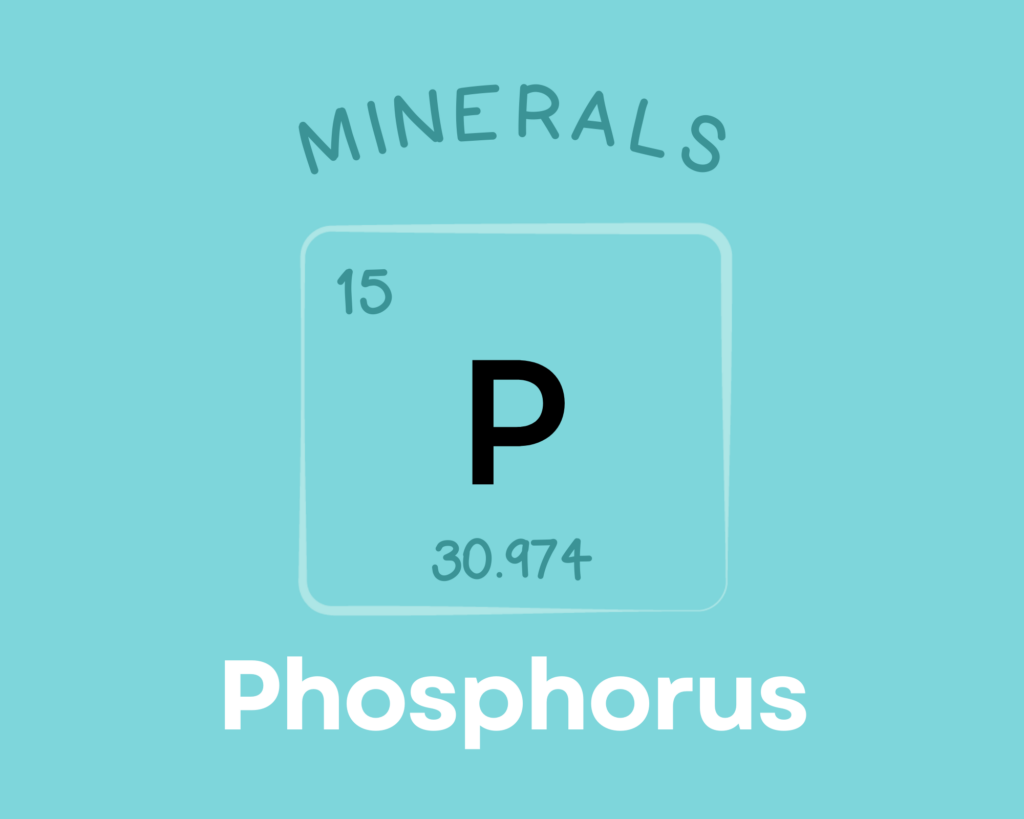
Phosphorus is an essential mineral that makes up about 1% of the total weight of the human body. Along with serving an important structural role for building nucleic acids and cell membranes, phosphorus is involved in numerous biological processes—including acid-base regulation, energy production, cell signaling, and bone mineralization. Excess phosphorus has been linked to a higher risk of cardiovascular disease, fractures, and osteoporosis, especially in the context of a low-calcium diet. Learn more about phosphorus here.
Cricket Provides 67% DV Vitamin B7 (Biotin)
Cricket is a best source of vitamin B7 (biotin), providing 67% of the daily value per 100-gram serving!
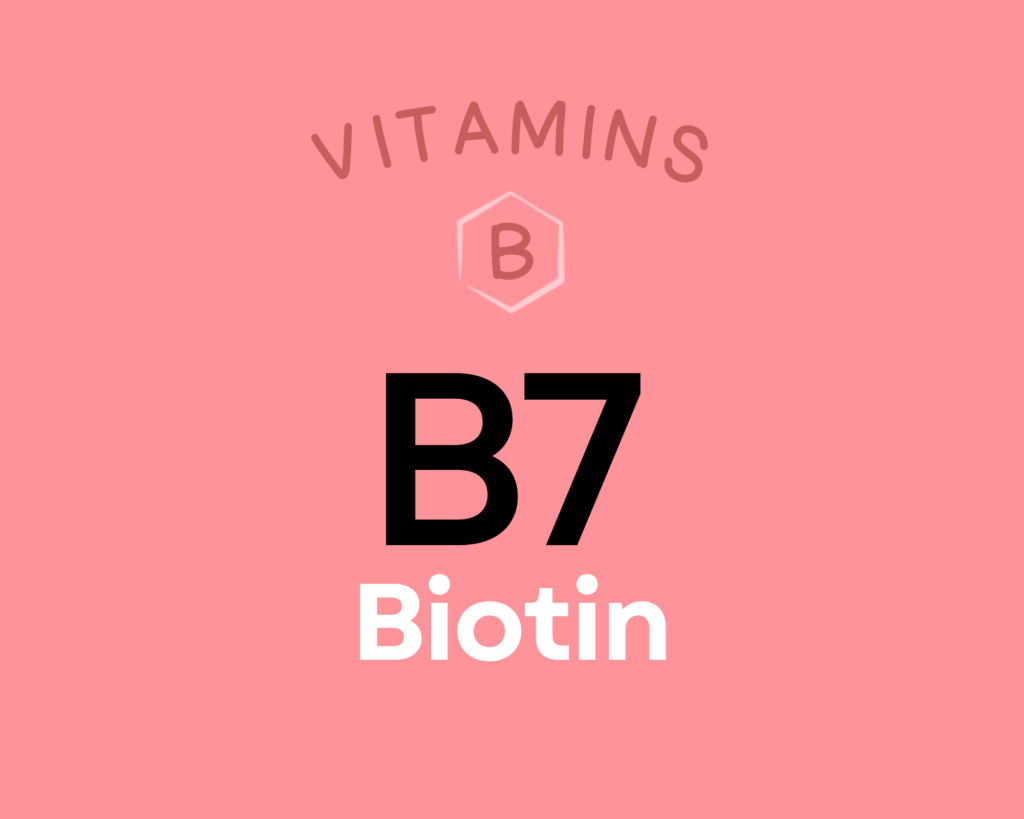
Biotin is a water-soluble B vitamin, also known as vitamin B7. Like other B vitamins, it plays an important role in energy metabolism (serving as a coenzyme for five carboxylase enzymes), neurotransmitter production, cellular function, and the function of various organs. Getting enough biotin can help support healthy nail and hair growth. It’s also particularly important during pregnancy, with low intakes increasing the risk of premature delivery and birth defects. There’s even some evidence biotin can benefit diabetics and reduce functional disabilities in people with multiple sclerosis. Learn more about biotin here.
Cricket Provides 49% DV Iron
Cricket is an excellent source of iron, providing 49% of the daily value per 100-gram serving!
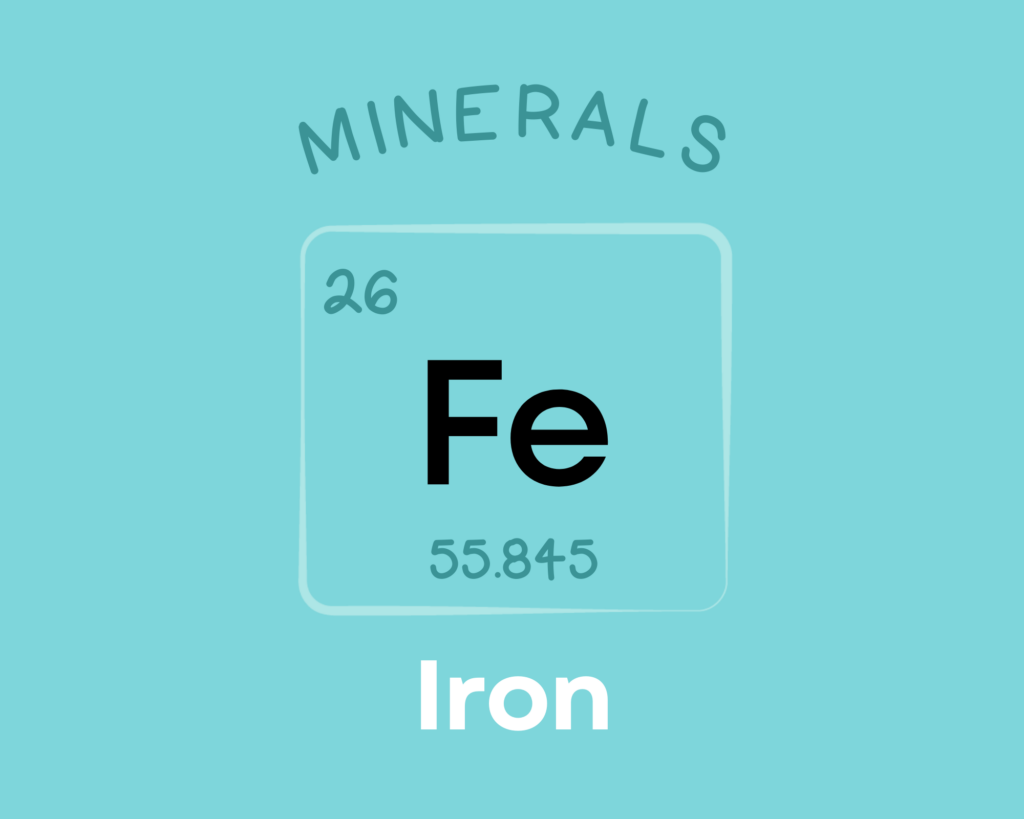
Iron is a mineral required for the metabolism of all living organisms. It’s needed for the function of numerous iron-dependent proteins involved in electron transport, energy metabolism, oxygen transport and storage, DNA replication and repair, free radical scavenging, and oxidative processes. It plays an important role in reproductive health, gestation, immunity, and central nervous system development. Learn more about iron here.
Cricket Provides 46% DV Vitamin B5 (Pantothenic Acid)
Cricket is also an excellent source of vitamin B5 (pantothenic acid), providing 46% of the daily value per 100-gram serving!
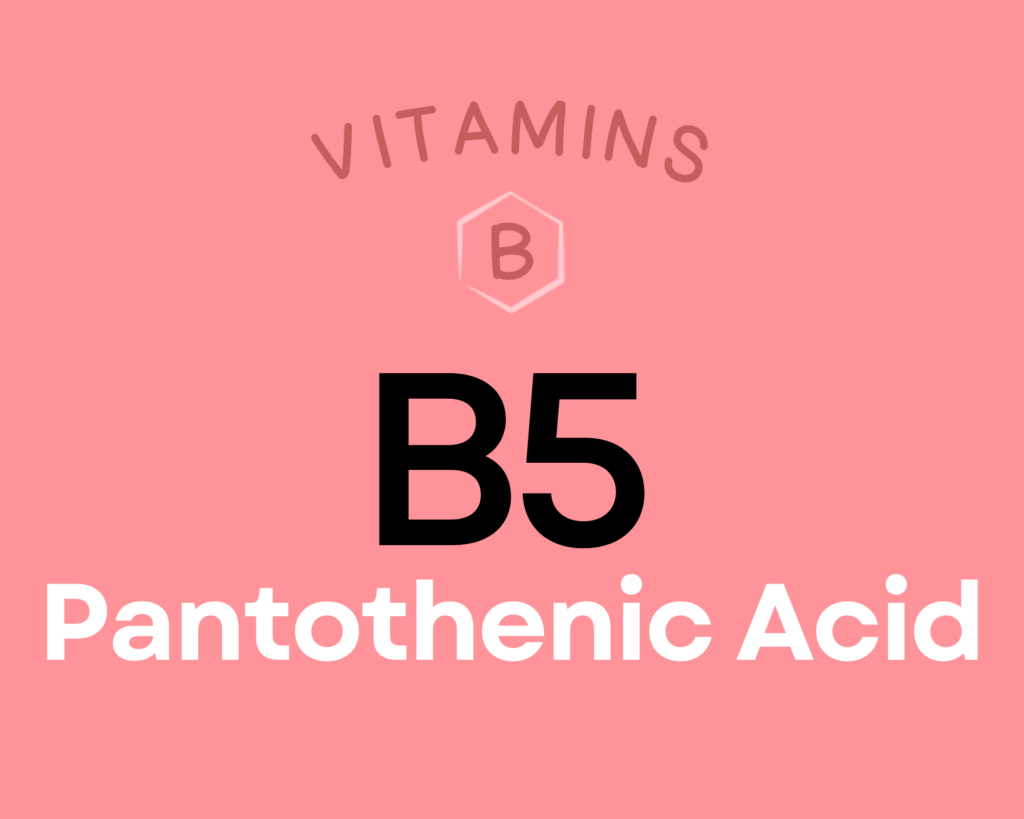
Pantothenic acid (or vitamin B5) is a water-soluble vitamin that serves as a cofactor for coenzyme A—which itself is critical for metabolizing many drugs and toxins, as well as forming derivatives (acetyl-CoA and succinyl-CoA) that participate in the synthesis of cholesterol, fatty acids, melatonin, the neurotransmitter acetylcholine, steroid hormones, heme, and vitamins A and D. Coenzyme A is also needed in the Krebs cycle, giving pantothenic acid a role in energy metabolism. Research suggests that a pantothenic acid derivative (pantethine) can help improve blood lipid profiles and reduce fatty streak formation and lipid deposition in the arteries, giving it a cardio-protective role. Additional research shows that panthothenic acid can accelerate wound healing, boost cellular production of the important antioxidant glutathione, and possibly help improve symptoms of rheumatoid arthritis. Learn more about vitamin B5 here.
Cricket Provides 38% DV Vitamin B9 (Folate)
Cricket is an excellent source of vitamin B9 (folate), providing 38% of the daily value per 100-gram serving!
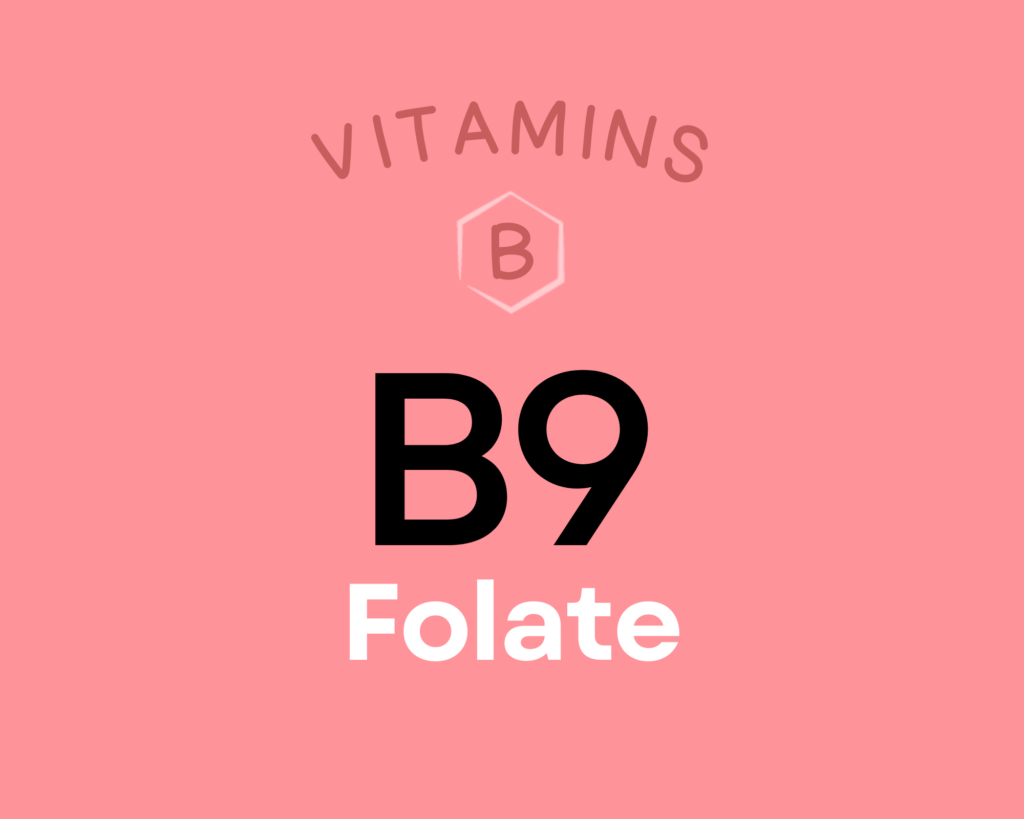
Vitamin B9 (folate) is an essential B vitamin that plays roles in blood cell production, the formation of genetic material (including DNA), and cell growth and function. It’s particularly important during pregnancy, when folate demands increase due to the rapid creation of new cells and DNA. Along with helping protect against fetal development problems, folate can support cardiovascular health, potentially protect against certain cancers, and reduce the risk of cognitive and neurological disorders later in life. Learn more about vitamin B9 here.
Cricket Provides 10.2 g of Fiber
Cricket is also an excellent source of dietary fiber, providing 10.2 g of fiber per 100-gram serving!
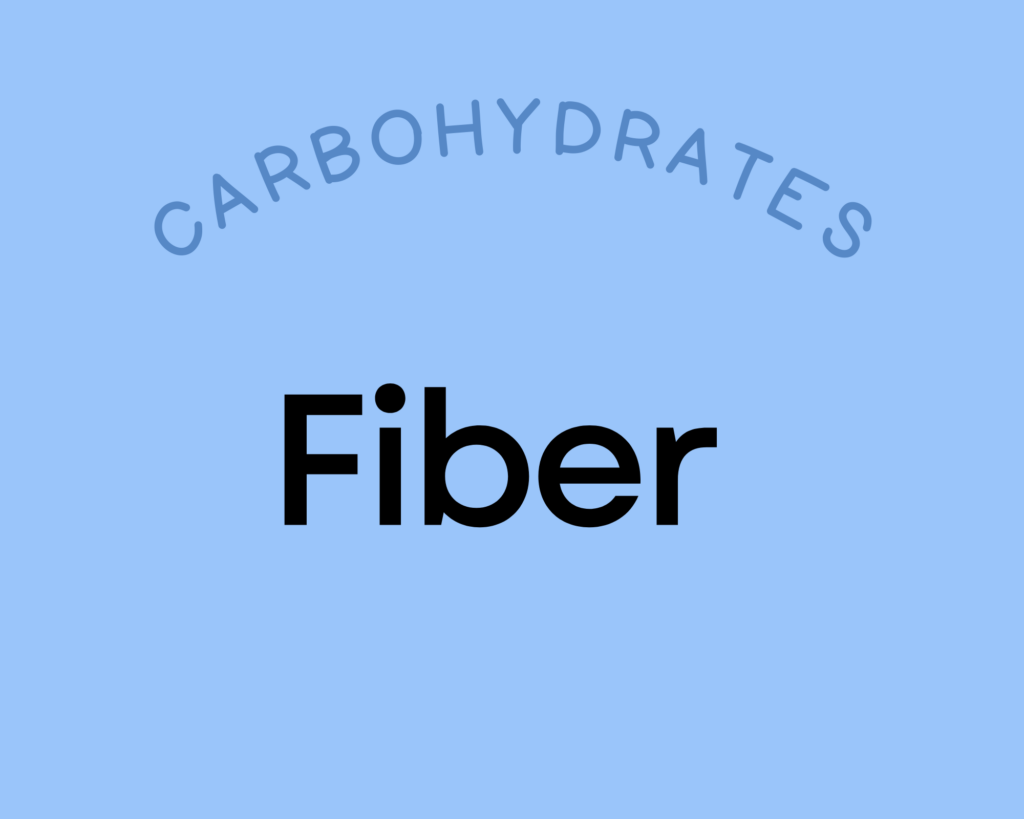
Fiber serves as substrate for the trillions of microbes that inhabit our digestive tracts, collectively referred to as the gut microbiome. Through their metabolism of fiber, these resident microbes benefit us in a whole host of ways, including aiding digestion, vitamin production, detoxification, regulation of cholesterol metabolism, providing resistance to pathogens, immune regulation, neurotransmitter regulation, regulation of gene expression, and more! In fact, every human cell is impacted by the activities of our gut microbes. A healthy gut microbial community is essential for our health. And, the converse is also true: An aberrant gut microbiome has been linked to conditions as wide-ranging as cancer, obesity, diabetes, cardiovascular disease, anxiety, depression, neurodegenerative diseases, autism, autoimmune disease, ulcers, IBD, liver disease, gout, PCOS, osteoporosis, systemic infections, allergies, asthma, and more!
Fiber has other benefits, like regulating peristalsis of the intestines (the rhythmic motion of muscles around the intestines that pushes food through the digestive tract), stimulating the release of the suppression of the hunger hormone ghrelin (so we feel more full), and slowing the absorption of simple sugars into the bloodstream to regulate blood sugar levels and avoid the excess production of insulin. Fiber also binds to various substances in the digestive tract (like hormones, bile salts, cholesterol, and toxins) and, depending on the type of fiber, can facilitate either elimination or reabsorption (for the purpose of recycling, which is an important normal function for many substances like bile salts and cholesterol), both of which can be extremely beneficial—if not essential—for human health.
The recommended dietary intake for fiber is 14 grams per 1000 kcal, which translates to 28 grams of fiber, if you eat a 2,000 calorie per day diet. However, there are many studies showing greater benefits from even higher levels of intake. Lear more about fiber here.
Cricket Provides 141.0 mg of Taurine
Cricket is an excellent source of taurine, providing 141.0 mg of taurine per 100-gram serving!
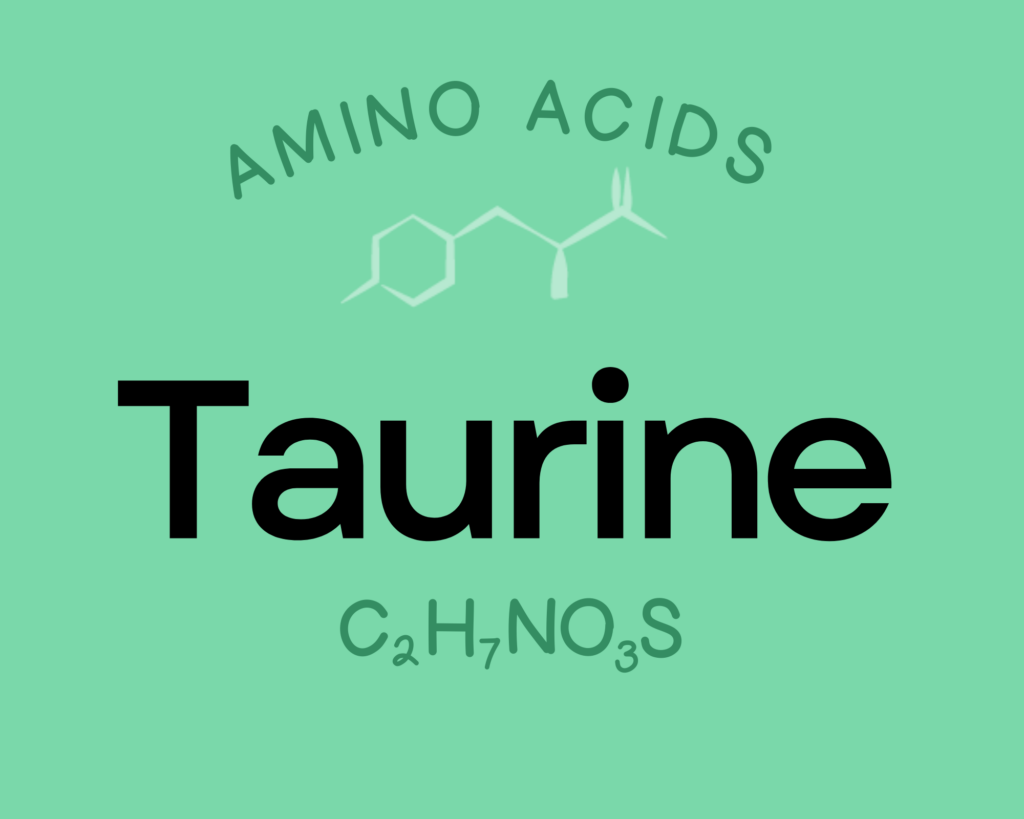
Taurine is a non-proteinogenic amino sulfonic acid that supports neurological development, serves as a major component of bile (which helps to digest fats), and plays a role in water and mineral regulation within the blood (including through membrane stabilization and calcium signaling). Taurine also regulates the immune system and serves as an important antioxidant, and it plays a role in cardiovascular function and the development of skeletal muscle.
Cricket Provides 35% DV Selenium
Cricket is also an excellent source of selenium, providing 35% of the daily value per 100-gram serving!
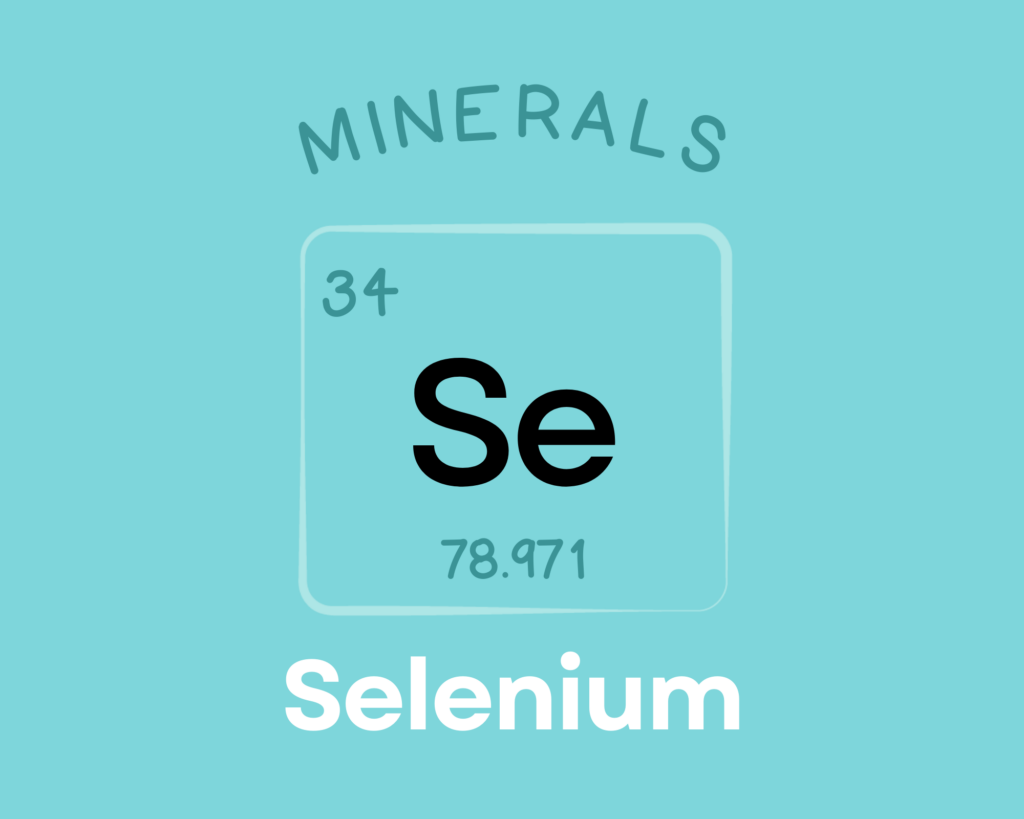
Selenium is a trace mineral needed by all mammals to sustain life. It serves as a component of the non-proteinogenic amino acids selenocysteine and selenomethionine, and also helps form over two dozen selenoproteins involved in reproduction, thyroid hormone metabolism, antioxidant defense, DNA synthesis, and immunity. Observational research suggests selenium could play a protective role against cancer, heart disease, asthma, and inflammatory bowel disease, although human trials have generally been lacking or contradictory. There’s also evidence that selenium can play a preventative role in asthma and inflammatory bowel disease, while also reducing mortality in patients with sepsis. Learn more about selenium here.
Cricket Provides 28% DV Choline
Cricket is an excellent source of choline, providing 28% of the daily value per 100-gram serving!
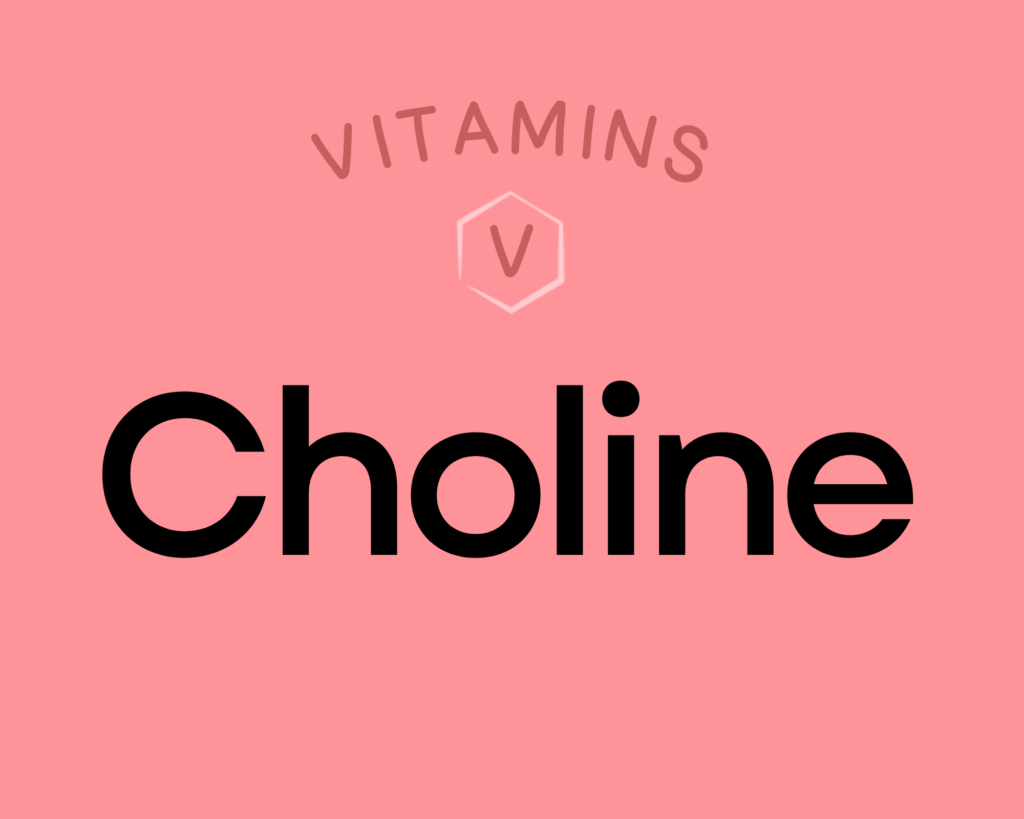
Choline is often grouped together with B-complex vitamins, and sometimes referred to as vitamin B4. It plays an essential role in building cell membranes. Choline also serves as the backbone for a neurotransmitter called acetylcholine, which is involved in heart health, gut motility (the movement of contents through the digestive tract controlled by the coordinated contraction and relaxation of specialized gut muscle tissue), and muscle movement. Adequate intake during pregnancy can help reduce risk of neural tube defects.
Cricket Provides 24% DV Vitamin B3 (Niacin)
Cricket is also an excellent source of vitamin B3 (niacin), providing 24% of the daily value per 100-gram serving!
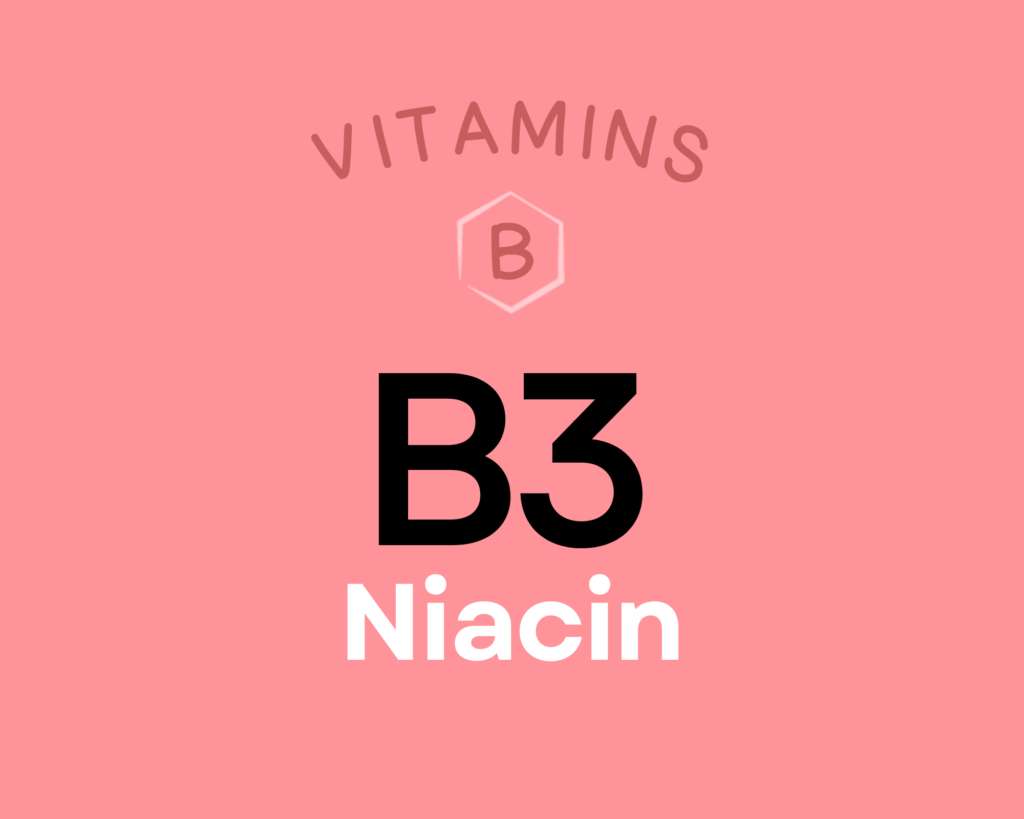
Niacin is a water-soluble B complex vitamin (vitamin B3) that’s needed to produce two very important coenzymes: nicotinamide adenine dinucleotide (NAD) and nicotinamide adenine dinucleotide phosphate (NADP). NAD and NADP are needed for over 400 enzymes involved in DNA repair, fatty acid synthesis, antioxidant systems, detoxification, and hormone synthesis, as well as the breakdown of fat, carbohydrate, protein, and alcohol. Niacin has therapeutic potential for cardiovascular disease and hyperlipidemia, and may also be protective against cancer and type 1 diabetes. Some research suggests it could benefit health outcomes for patients with HIV or schizophrenia as well. Learn more about niacin here.
Cricket Provides 23% DV Magnesium
Cricket is an excellent source of magnesium, providing 23% of the daily value per 100-gram serving!
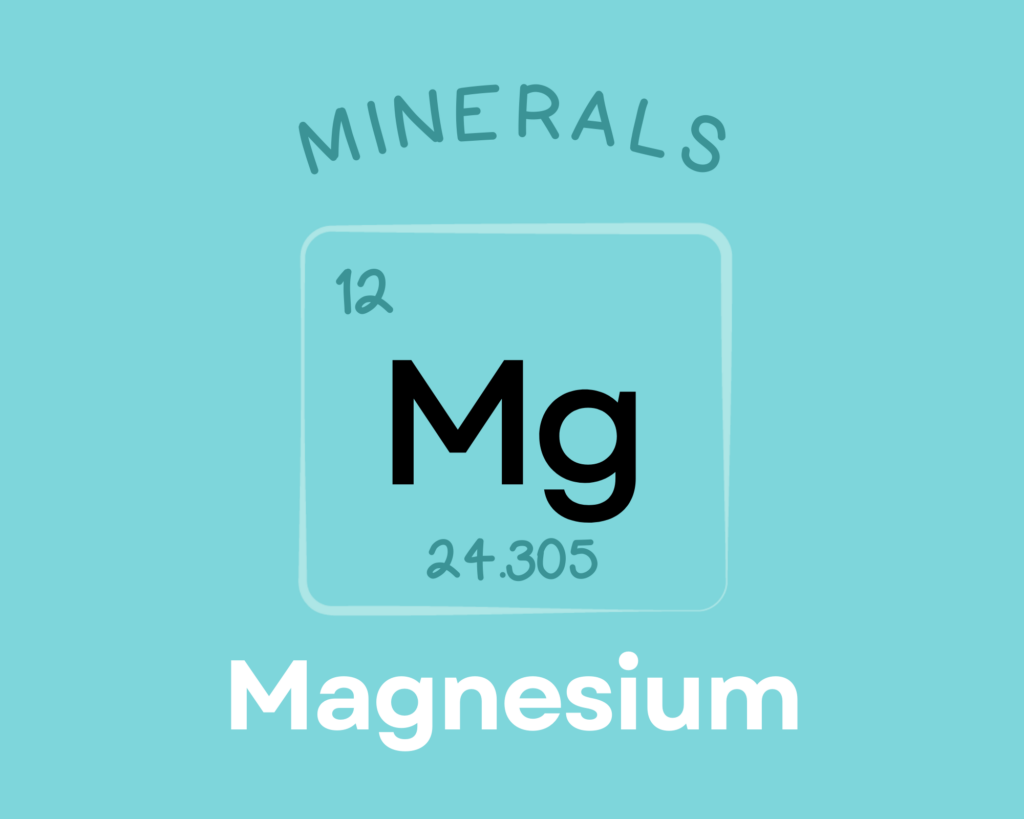
Magnesium is an essential mineral needed by every cell in the body. As an electrolyte, it’s important for regulating fluid balance, nerve and muscle function, blood pH, and neurotransmission. It also serves as a cofactor for hundreds of different enzymes, giving it a role over 300 metabolic reactions—including pathways for cell signaling, energy production, protein synthesis, nucleic acid synthesis, and ion transport. Magnesium also has important structural functions in cells and bone tissue. Consuming enough magnesium may help protect against a variety of chronic diseases, including cardiovascular disease, type 2 diabetes, and osteoporosis. Learn more about magnesium here.
Cricket Provides 22% DV Calcium
Cricket is also an excellent source of calcium, providing 22% of the daily value per 100-gram serving!
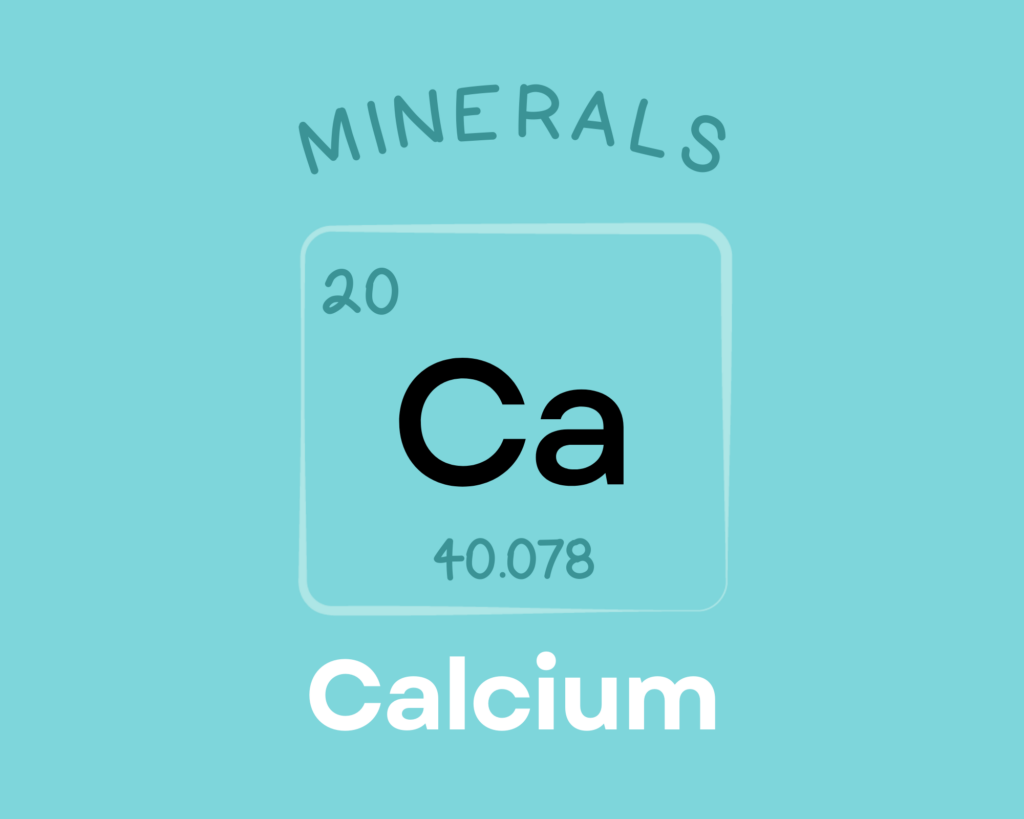
Calcium is a major structural component of bones and teeth, and also serves as an electrolyte—a type of electricity-conducting mineral needed for regulating nerve impulses, muscle contraction (including the heartbeat), blood pH, and fluid balance. Getting enough calcium helps protect against osteoporosis and bone fractures, while also potentially reducing the risk of colorectal cancer, pregnancy-related high blood pressure, and kidney stones. It may even help improve PMS symptoms and assist in body weight regulation! Learn more about calcium here.
Learn What Foods Are the Best Sources of Every Nutrient
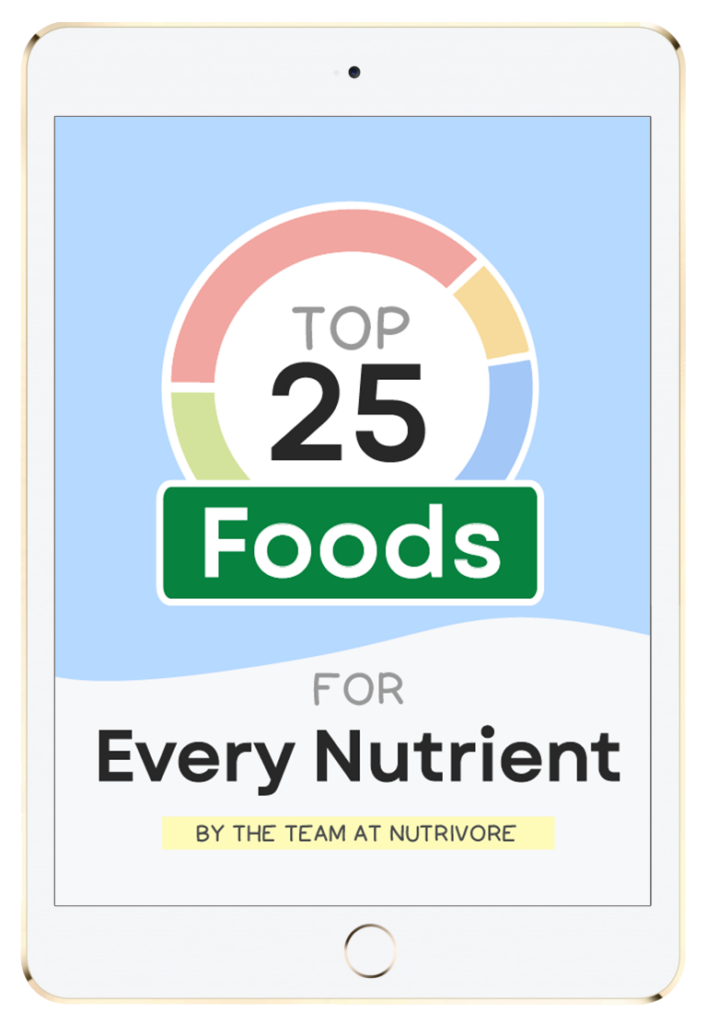
The Top 25 Foods for Every Nutrient
The Top 25 Foods for Every Nutrient e-book is a well-organized, easy-to-use, grocery store-friendly guide to help you choose foods that fit your needs of 43 important nutrients while creating a balanced nutrient-dense diet.
Get two “Top 25” food lists for each nutrient, plus you’ll find RDA charts for everyone, informative visuals, fun facts, serving sizes and the 58 foods that are Nutrient Super Stars!
Buy now for instant digital access.
How Much Cricket Should We Eat Per Day?
Not only is cricket one of the most sustainable food sources in the world, it is also a nutrient super star! Crickets are a top 25 food source of 19 different nutrients (out of 42 evaluated). In fact, they are the number one food source of protein per serving!
Proteins are the molecules that perform most of the various functions of life which is why protein deficiency is detrimental to all of the body’s organs and systems, including impacting function of the brain (especially in infants and young children), immune system, gut barrier, and kidneys. Dietary protein is necessary to supply the amino acid building blocks for all of the proteins in our bodies. Physical signs of protein deficiency include edema (swelling), poor musculature, dull skin, thin and fragile hair, and failure to thrive in infants and children.
The Accepted Macronutrient Distribution Ranges (AMDR) were established by the Food and Nutrition Board of the Institute of Medicine using evidence from interventional trials with support of epidemiological evidence that suggest a role in the prevention or increased risk of chronic diseases, and based on ensuring sufficient intake of essential nutrients. The AMDR for protein is 10% to 35% calories from protein.
The recommended daily allowance of protein is 0.36 grams per pound body weight (0.8 grams per kilogram of body weight). That amounts to 56 grams for a 150-pound person. However, it’s important to emphasize that this number is considered a minimum daily allotment, and there is no established upper limit. In fact, many studies have evaluated diets containing three to four times more protein than this minimum and proven benefits to weight management, body composition, hormone regulation, and cardiovascular health. These studies suggest that an optimal protein intake for most people is probably in the range of 1.2 to 1.8 grams per kilogram bodyweight (82 to 122 grams for that same 150-pound person), and that people who are very active may see the best results at even higher intake. Learn more about protein here.
Easily track your servings of Nutrivore Foundational Foods!
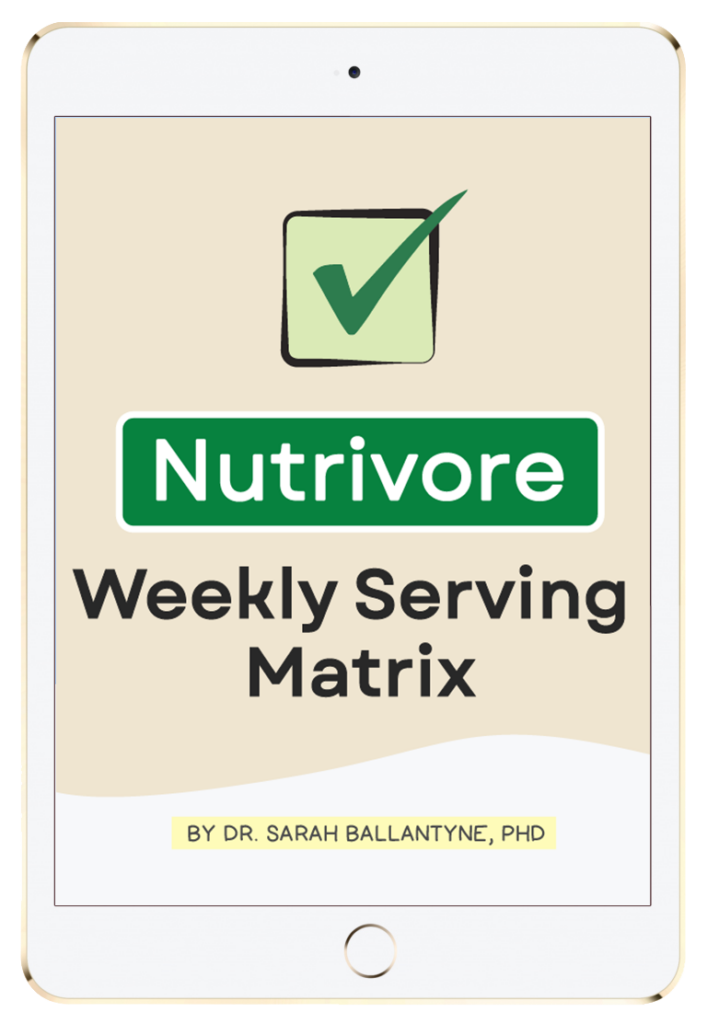
The Nutrivore Weekly Serving Matrix
The Nutrivore Weekly Serving Matrix digital resource is an easy-to-use and flexible weekly checklist designed to help you maximize nutrient-density and meet serving suggestions of Nutrivore foundational foods, all without having to weigh or measure your foods!
Includes a 22-page instructional guide and downloadable interactive guides.
Buy now for instant digital access.
cITATIONS
Expand to see all scientific references for this article.
Finke MD. Complete nutrient composition of commercially raised invertebrates used as food for insectivores. Zoo Biology. Vol 21(3):269-285.
Magara HJO, Niassy S, Ayieko MA, Mukundamago M, Egonyu JP, Tanga CM, Kimathi EK, Ongere JO, Fiaboe KKM, Hugel S, Orinda MA, Roos N, Ekesi S. Edible Crickets (Orthoptera) Around the World: Distribution, Nutritional Value, and Other Benefits-A Review. Front Nutr. 2021 Jan 12;7:537915. doi: 10.3389/fnut.2020.537915. PMID: 33511150; PMCID: PMC7835793.
Payne CL, Scarborough P, Rayner M, Nonaka K. Are edible insects more or less ‘healthy’ than commonly consumed meats? A comparison using two nutrient profiling models developed to combat over- and undernutrition. Eur J Clin Nutr. 2016 Mar;70(3):285-91. doi: 10.1038/ejcn.2015.149. Epub 2015 Sep 16. PMID: 26373961; PMCID: PMC4781901.
Watanabe T, Kioka M, Fukushima A, Morimoto M, Sawamura H. Biotin content table of select foods and biotin intake in Japanese. Int J Anal Bio-Sci. 2014. Vol 2(4):109-125.


